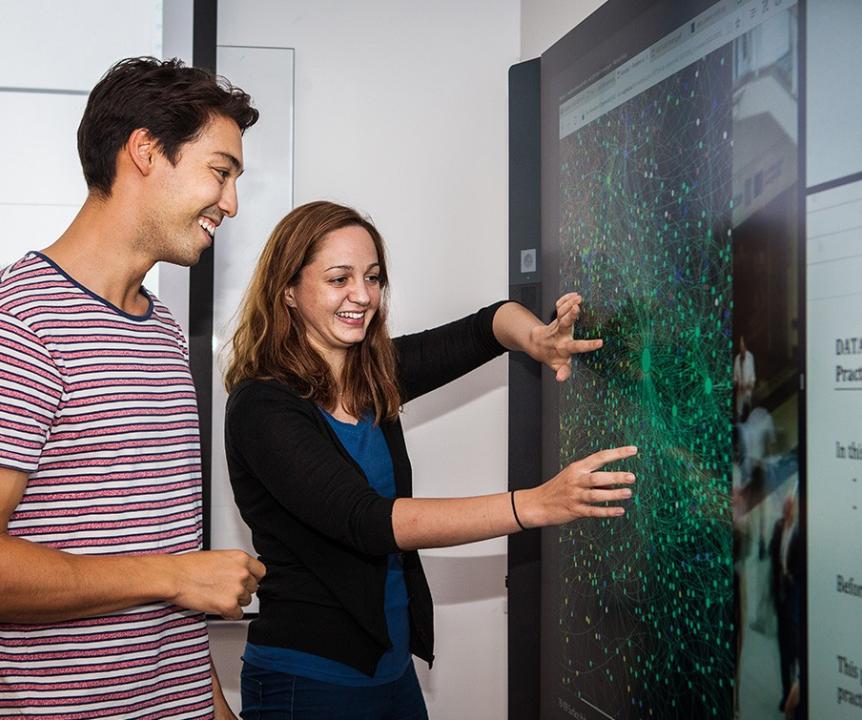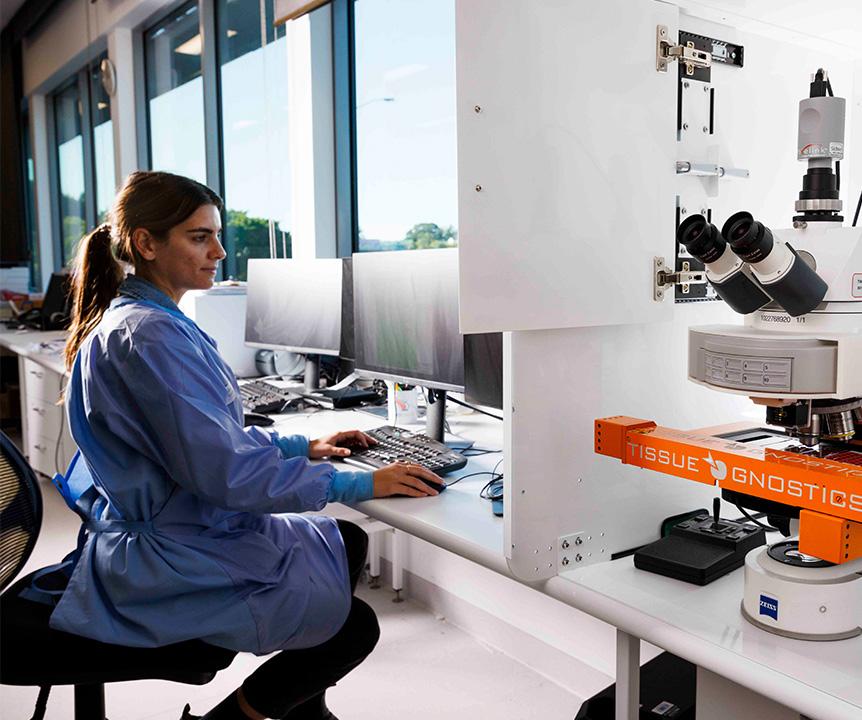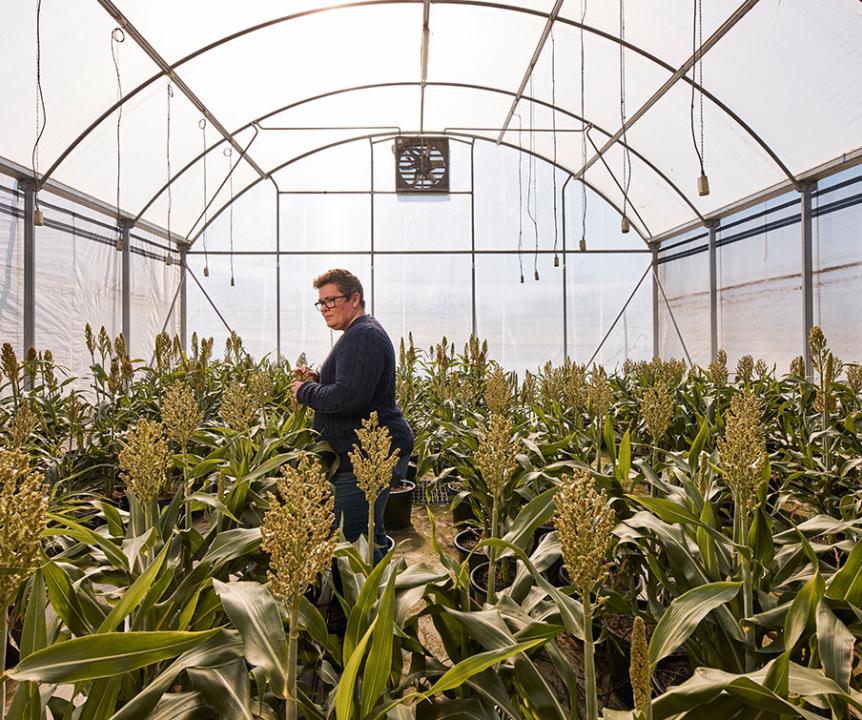Artificial intelligence research capabilities and impact
UQ AI researchers and our industry and government partners are designing cutting-edge AI solutions.
What we're working on
UQ AI researchers and domain experts are co-designing innovative AI solutions to tackle complex global problems together with our industry and government partners.
From health and medicine to business, agriculture, mining, energy and defence, our research impact on industry, society and government is broad and diverse.
Find out more about our key capabilities:
Data management and data science
UQ researchers are working on novel techniques for human-in-the loop data curation, data distillation, information resilience, and energy efficient algorithmic design.
The large data sets used to train current AI systems are often collected without the explicit consent of the people who created it. This raises questions about quality, consent, ownership, and privacy. Given the size of the data sets and AI models, storage, analysis and training activities create increasingly large computational and energy costs.
In practice: Detecting fake news through AI
Dr Gianluca Demartini has partnered with Facebook to:
- develop automatic fake news detection systems
- investigate the possibility of generating information credibility literacy tasks that can give people the skills to recognise fake news.
The ability to spread false information through online social networks together with the ability to profile and micro-target individuals has made it possible to create customised false content. Fortunately, similar data-driven and AI methods can also be used to detect misinformation and to control its spread.

Computer vision and multimedia computation
This research focuses on developing algorithms and techniques for interpretation of visual information through processing, analysing, or fusing various modalities of multimedia data like images, videos, text, and audio.
Researchers at UQ aim to enable data-driven intelligence applications and services by exploring advanced deep learning models for visual recognition. This includes techniques like few-shot/zero-shot learning, adversarial learning, and graph learning to distil high-level knowledge from:
- underlying data semantics for decision making
- hashing-based retrieval in deep learning models used for multimedia retrieval
- generative AI models for image synthesis.
In practice: Artificial intelligence in skin cancer diagnostics
UQ researchers are working to develop technology that automates skin checks. Australia has the highest rate of skin cancer in the world, and early detection is one of the most important factors for improved survival rates.
Convenient and personal full body scans would allow skin cancer to be detected at a much earlier rate.

Machine learning
The use of machine learning and data mining techniques provide capabilities for analysing and understanding large, complex data. However, a key challenge is the need for large amounts of accurately labelled training data.
UQ researchers are developing techniques for building effective machine learning systems using limited or synthetically generated datasets, without sacrificing predictive performance on novel real-world data. The outcomes could contribute to important research directions in privacy-preserving machine learning, explainability in AI and transfer learning. They could also help remove barriers to applying machine learning to critical domains like healthcare, defence, cybersecurity and more.
In practice: AI-monitored ICU illness severity prediction
In the ICU, the most frequently asked question is about whether the patient is improving or deteriorating.
AI-powered software developed by UQ researchers will provide clinicians with an additional, data-driven perspective on the patient situation and their likely prognosis to assist clinicians in making better, evidence-based decisions.

Human-centred AI
While AI tools are becoming more sophisticated, evidence shows that effective use of these is limited. For example, despite decades of work on AI decision support, such tools hardly improve people’s decisions as the tools often don’t solve the right problem to begin with, and there has not been sufficient consideration of whether they fit into user workflows and contexts.
Human-centred AI research at UQ aims to improve this through human-centred methodologies to understand these problems. Research includes developing appropriate, trustworthy oversight and governance mechanisms to ensure AI systems are developed and used for the betterment of society, upholding the highest ethical principles.
In practice: Building workplace trust in AI
How can organisations build trust in their use of AI at work and encourage employees to buy in? A partnership between UQ and KPMG produced a study that found only 40% of Australians trust AI in the workplace.
The research team surveyed more than 17,000 people from 17 countries in the first global deep dive into public trust and attitudes towards the use of AI.

Generative AI
The creation of efficient and effective algorithms to create, update, and leverage large language models is a key area of research at UQ, with expertise in natural language processing, search and recommendation.
UQ researchers are conducting fundamental research, exploring:
- new solutions for how generative AI systems can provide performance guarantees or confidence scores for the results being generated
- how we can reduce the computational costs and energy costs of creating new models and/or result generation
- how these systems can be used to truly amplify human potential.
In practice: Helping farmers make data-driven decisions
AgAsk, a conversational agent being produced by UQ researchers, will give farmers access to tailored information about grain research and development.
This data is often hidden in project reports and scientific publications. Access to personalised, contextualised data allows farmers to put this data into practice.


